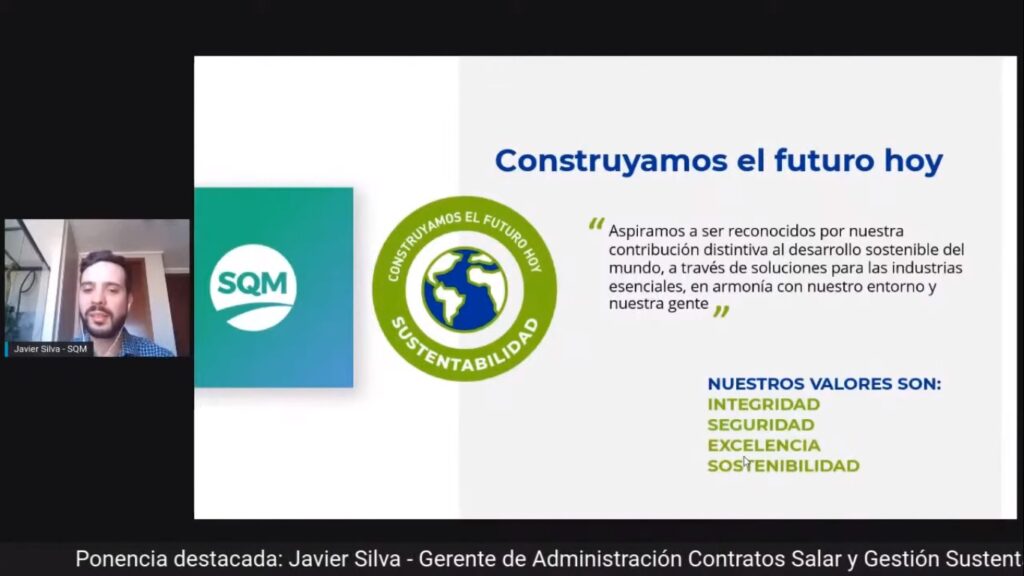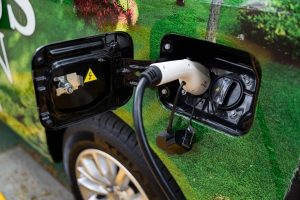
SQM Aims to Reduce Inland Water Use to 30% by 2030

“The world is getting worse and we need to change our environmental reality now”. With these words, Salar Contract Administration and Sustainability Manager of SQM (Sociedad Química y Minera de Chile), Javier Silva, opened a presentation describing the projects being implemented by the company to minimize the negative impact on the environment.
“Why does sustainability matter to the EV industry? Climate change is increasingly affecting us and we need to take action. The reduction of GHGs (greenhouse gases) is necessary to have a sustainable environment and in this scenario, Lithium plays a fundamental role for emission-free cars.
Silva indicated that SQM is working to reduce the use of continental water by 30% in 2030, and by 65% in 2040, the same date on which the company intends to be carbon neutral throughout its products.
“Our process is based on solar energy with concentration of Lithium-rich brines. Through the developments we carry out, we are able to produce quality Lithium Carbonate, enough for a vehicle battery to last 10 or 15 years, he said.
Regarding the projections for the end of the current decade, the representative highlighted that they will go from producing 312,000 tons of lithium carbonate per year (an indispensable product for the creation of batteries for EVs) to about two million per year as of 2030, which he complemented by affirming that SQM is the Lithium producer with the lowest carbon footprint.
How is Sustainable Lithium Obtained?
Through various pillars based on ESG (Environmental, Social and Governance), SQM pursues the sustainable path. Inside, the Chilean firm works on its internal growth, a fact that Silva validated through figures, among which he called out the one referring to gender equity.
“Currently, 17.5% of our team are women. This number exceeds the national average for the mining industry, considering that we have 12,900 workers”.
Based on the above, SQM is working towards compliance with the fifth of the 17 Sustainable Development Goals (SDGs) of the United Nations Development Program (UNDP) based on gender equality and female empowerment.
Regarding the contribution of the sustainable industry, Javier highlighted that the process to obtain Potassium Nitrate for the food sector is carried out with a more efficient use of land and water, while the Lithium distribution is one of the main contributions to boost electromobility.
It is noteworthy that the company qualified for the Down Jones Sustainability Index, a strict and recognized measure of sustainability performance that rates large companies in the world.
Silva’s speech took place during the X Sustainable Mobility Summit organized by Latam Mobility, held virtually on October 6.
Below, you can watch the full presentation.





